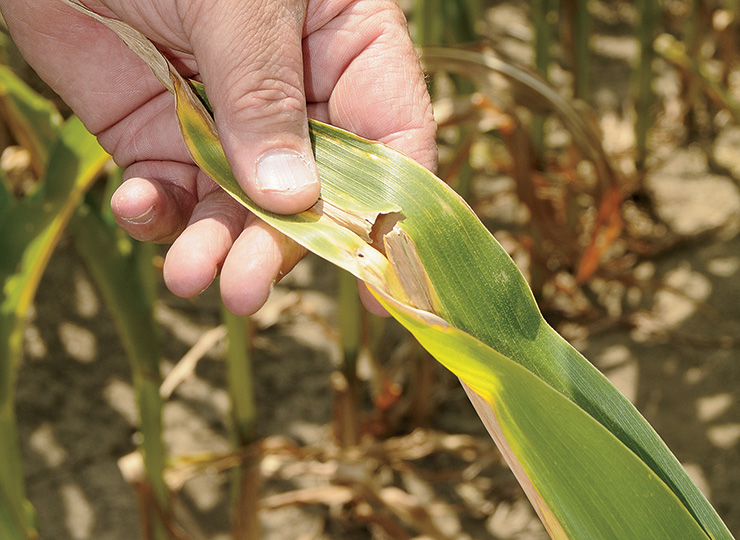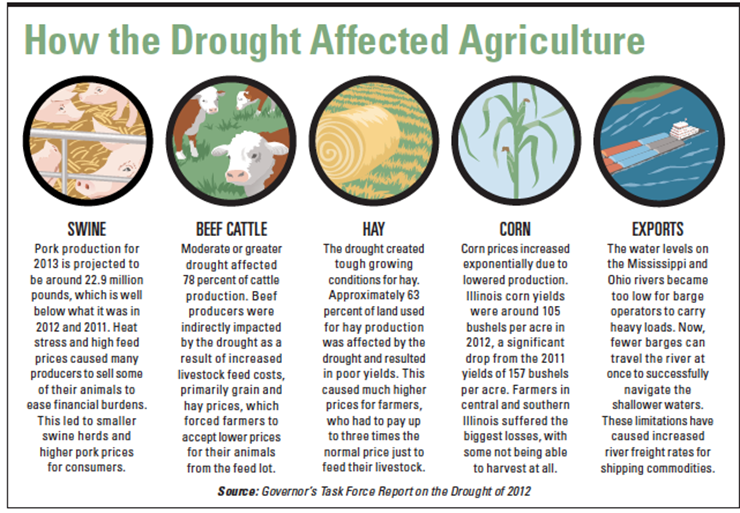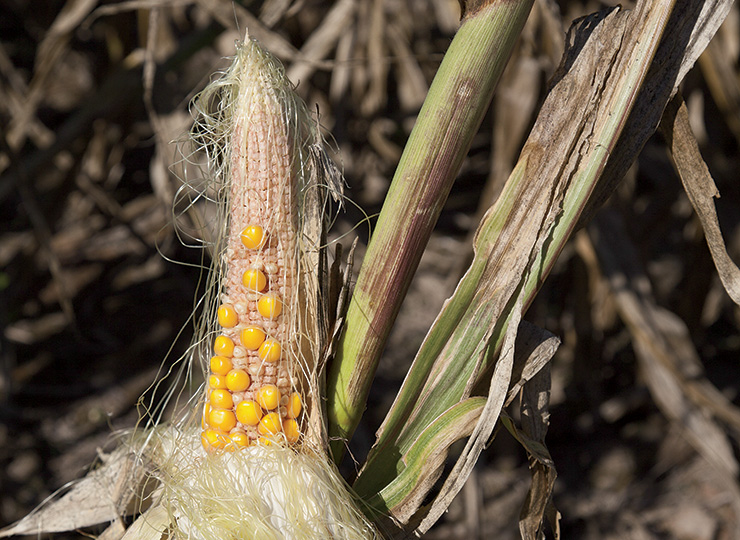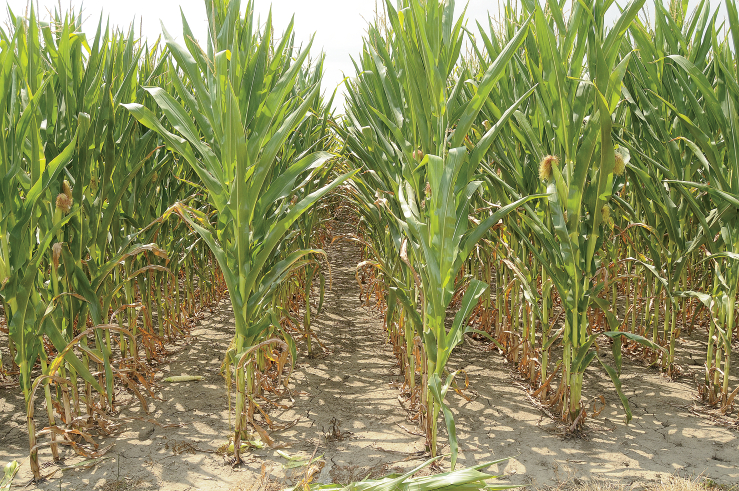Home > Illinois > Illinois Environment > High and Dry: How the 2012 Drought Affected Illinois Agriculture
High and Dry: How the 2012 Drought Affected Illinois Agriculture

For all the tension it created and the damage it caused, the drought of 2012 was one that Illinois farmers and others in agriculture would like to forget.
But for the lessons it taught and the guidance it gave for the future, the 2012 drought will be forever remembered.
“It was probably one of the worst droughts we experienced in the past 50 years-plus,” says Jim Kaitschuk, director of the Illinois Pork Producers Association, an agricultural trade group that represents pork producers throughout Illinois.
The drought, most severe in the southern part of the state, had an effect on all sectors of agriculture. Livestock production was reduced, as were yields from row crops including corn, soybeans and others. Transportation issues reached a critical level late in the year when water levels dropped on the Mississippi River and irrigation by farmers significantly increased.
In short, the drought had a tremendous impact on the agricultural economy.

Livestock and Crops Affected
“We saw extremely high feed prices as a result,” Kaitschuk says. “In terms of input cost on the feed side, (the drought) obviously had a tremendous impact on viability for operations across the state.”
Cattle and dairy farmers had to buy more hay than usual for feeding due to pastures drying up early in the season, and some farmers experienced a shortage of well water. As a result, some farmers were forced to sell off a portion of their herds.
“What it really did was cause producers to be extremely innovative in terms of what they could create for feed,” Kaitschuk says.
To help producers with sales, Gov. Pat Quinn developed a pork purchasing program that increased state purchases of pork produced in Illinois by 30 percent.
The quantity and quality of row crops were also affected by the drought. The Governor’s Task Force report on the drought showed that statewide 2012 yields were 105 bushels per acre for corn and 43 for soybeans, compared to 2011 yields of 157 bushels for corn and 47.5 for soybeans.
The 2012 corn crop has an increase of aflatoxin, a mycotoxin produced by a fungus that can colonize on the corn kernels, causing ear rot. Aflatoxin is a known carcinogen. The issue prompted the IDOA to request a waiver to blend aflatoxin contaminated corn from the U.S. Food and Drug Administration.

Limited Movement
Transportation was jeopardized in the fall of 2012 when levels on the Mississippi River dropped significantly, especially in November, when grain products were being shipped downriver and fertilizer was coming upriver. Of particular concern were rock pinnacles in the river at the Thebes and Grand Tower area, according to Kevin Schoeben, deputy director of the Office of Planning and Programming for the Illinois Department of Transportation.
He credits Gov. Quinn and Sen. Dick Durbin for working diligently to ask the U.S. Army Corps of Engineers to remove the rocks so barges could maneuver through that area of the Mississippi.
“The Corps of Engineers had plans to remove pinnacles in late January to early February (of 2013), meaning the river would have shut down on Dec. 21,” Schoeben says. “Those projections were unacceptable, so Sen. Durbin and Gov. Quinn encouraged the Corps to get the pinnacles removed in December.”
Those in agriculture are looking at experiences from the 2012 drought to make sure they’re prepared for the next one. The governor’s task force report makes several recommendations.
“Farmers may want to seek out disaster assistance programs before the next drought,” says Steve Chard of the IDOA’s Bureau of Land and Water Resources, who was a member of the task force. “It’s always good to be armed with information before that kind of event.
“And livestock producers may want to think about deepening their existing wells, or digging a new well, to have a sufficient water supply prior to the next drought.”




